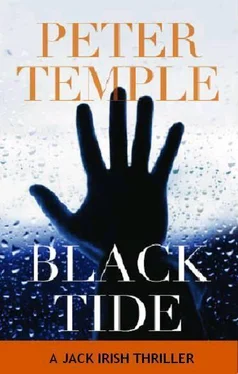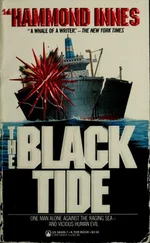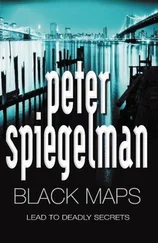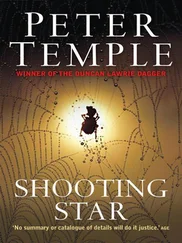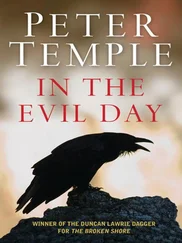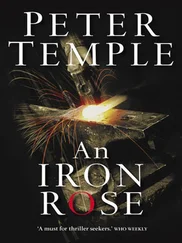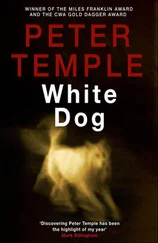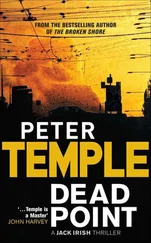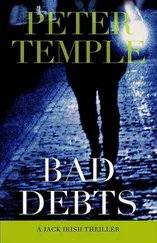She pirouetted, arms bent, fingers pointing outwards. ‘I want to be surrounded by books. I love books. Books. I must have a room where I can breathe books. Floor to ceiling. I saw Sir Dennis’s library. I knew only one made by you would be good enough.’
She smiled at us in turn, a little longer at me. There was a certain glitter in the eye.
‘The deposit is fifteen thousand dollars,’ I said.
‘The books,’ said Charlie. ‘Big books, small books? Library, you make it to fit the books.’
Mrs Purbrick had moved over to stand close to me. I hadn’t seen any movement but a hip was in contact with my left leg.
‘Mr Irish,’ she said, ‘David will give you a cheque for the deposit. Mr Taub, build it and the books will come. To fit. David will arrange the right size books, don’t you worry.’ She looked at David, standing in the doorway. ‘Size is David’s concern.’
From the doorway, David said, ‘Absolutely. Size is my department. Isn’t it, Mrs Purbrick?’
She turned her head and smiled at him. You could see that extending her mouth sideways required effort and the lips could snap back like an old-fashioned purse. ‘Bring the car around, will you, darling.’
His lips twitched and he disappeared. Her hip moved against my outer thigh, a contact and a rub, measured in millimetres. I found the experience disconcerting but not unpleasant.
Charlie took the measuring sticks from me. ‘Write,’ he said.
I got out my notebook. Mrs Purbrick made hip contact again, smiled and said, ‘I’m in your incredibly talented hands, gentlemen. If you need anything at all, shout for David.’
At the door, she turned. Our eyes met. I thought the movement of her hairline indicated an attempt at a wink.
Charlie took about a hundred measurements and I said each one back to him before I wrote it down. Everything would be built in the workshop and brought here in sections to be installed over a few days. This meant that a mismeasurement of even a centimetre could be disastrous. When we’d finished, I found David and he let us out in a courteous and respectful manner.
I drove around to Gary Connors’ apartment block and found a park right outside. ‘What’s this?’ asked Charlie. ‘Bunkers they need in Toorak now?’
‘I’ll be five minutes,’ I said. At the front door, I pressed the button with Manager under it. A rich voice said, ‘Can I help you?’
‘I’d like to talk to you about Mr Connors in unit five.’
‘In what connection?’
‘His whereabouts.’
‘May I ask who you are?’
‘I’m a lawyer representing his father.’
‘Do come in.’
The doorbolt clicked. I went into the lobby. The door on the left was opened by a man in his sixties, neat grey hair on a mound-shaped head, military moustache, reading glasses half-way down his nose. He was wearing grey flannels, a white shirt and a striped tie, a school tie. He put out his right hand.
‘Clive Wendell,’ he said. He didn’t look the type to be caretaker of a postmodern bunker. A converted Edwardian mansion full of retired graziers would have suited.
I introduced myself. We went into his sitting room. It was chintzy, silver-framed photographs on every surface, kelims on the floor, two regimental swords on a side wall.
‘About ready for the pre-lunch gin,’ he said. ‘Join me?’
I declined. He went over to the drinks tray, poured a modest amount of gin into a glass, added tonic from an open bottle. Perhaps not the first G &T of the day.
‘Police did mention Connors’ family,’ he said, sitting down. There was something wrong with his left leg or hip.
‘When were they here?’
Wendell sipped, put his glass on a side table, leaned over and picked up a black ledger with red binding from the coffee table. ‘The book,’ he said. ‘The good book. Thank God for the book. Relied on memory, I’d be buggered.’ He pushed his glasses up, flicked pages, stopped. ‘Fifth of April, morning.’
‘What did they want?’
He looked puzzled, put the book in his lap, lowered his glasses. ‘Well,’ he said. ‘Family reported Connors missing.’
I nodded. ‘Of course. The police wanted to look around the flat.’
‘Yes. Thorough too, I can tell you. No need to worry on that score. You can tell his father. No need for concern. Took the matter very seriously indeed.’
‘He’ll be pleased to hear that.’
‘Sure he will. Worrying business. Still worry about my daughter. In Canada with three teenagers and I still worry.’
‘We all do. Did they find anything of interest, do you know? They’re being very non-committal with Mr Connors senior.’
He drank a teaspoon of G &T. ‘Can’t help. Wish I could. Had me let them in, shooed me off. Wouldn’t let me through the door. Didn’t want the waters muddied, I imagine. They were up there for a good forty-five minutes.’
‘I suppose they identified themselves, left a card, that sort of thing,’ I said.
More G &T. ‘Absolutely. We don’t let any old person in the front door here.’ Wendell repositioned his glasses, raised the ledger and read. ‘Detectives Carmody and Mildren, Australian Federal Police.’
‘Federal Police. Not the local police?’
Puzzled again. ‘Connors’ father hasn’t had dealings with them?’
‘He reported his concerns to the local police. I suppose they handed the matter on.’
‘Absolutely. Carmody, he was in charge, said missing people were a Federal responsibility. Cross state borders, that type of thing. Makes sense, doesn’t it?’
‘Impeccable sense. When did you last see Gary?’
‘Oh, some time in March, middle of March. We arrived in the car park together, exchanged a few words.’
‘The card the police left you. It’s got a phone number on it, I take it. Can I get that?’
‘Of course.’ He adjusted his glasses and read out a number from the ledger. I wrote it in my notebook.
I stood up. ‘Well, thanks for seeing me. Gary’s father will be reassured.’
Wendell came out of his seat with difficulty. ‘Pleasure. My good wishes to him. Worrying business. You read about these people murdered in Bangkok hotels. Still, experienced traveller. Seldom here, I can tell you. Off on business all the time. High-powered. Nice chap. Quiet.’
He saw me out.
Charlie was in a contemplative mood when I got back. We drove back in silence until, in Hoddle Street, stuck in the small-business traffic, in the rain, the exhaust-perfumed rain, the Stud’s wipers making greasy smears, Charlie said one word.
‘Unwürdig.’ His face was turned from me, looking in the direction of a printery. He was thinking about Mrs Purbrick’s library. The hands, the huge machines, were lying upturned on his thighs. It occurred to me that I couldn’t recall seeing Charlie’s hands in repose before.
I knew what he meant, although it contradicted things he had said to me. I didn’t say anything until I turned up Gipps Street. Then I said, ‘Utterly Unwürdig. Worse than Unwürdig. Since when did Unwürdig bother you? I thought you were making the stuff for the generations to come?’
Charlie didn’t cheer up. ‘Sometimes,’ he said, ‘I think the generations to come might be just as Unwürdig.’
I dropped him at the workshop’s front entrance and drove around the corner to park in the alley. The mobile rang as I was getting out of the car.
‘Jack Irish? Tony Rinaldi.’ Brisk barrister’s voice.
‘Tony, you probably won’t remember me…’
‘Of course I remember you. On the town with that bloody Greer last night, I gather.’
‘Can we have a little talk in confidence about the question Drew asked you?’
Pause. ‘I’m sorry, Jack. I don’t know what Drew read into my remark to him, but I think he’s got it all wrong. In any event, it’s all confidential stuff. I can’t discuss it. You’ll appreciate that, even if Greer doesn’t.’
Читать дальше
